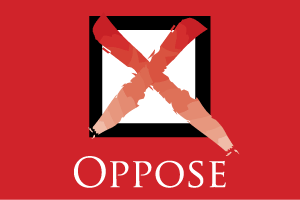 A California Chamber of Commerce-opposed bill that will financially impact small- and medium-sized businesses and create onerous reporting requirements on large businesses will be considered by the Senate Judiciary Committee this afternoon.
A California Chamber of Commerce-opposed bill that will financially impact small- and medium-sized businesses and create onerous reporting requirements on large businesses will be considered by the Senate Judiciary Committee this afternoon.
The bill, SB 253 (Wiener; D-San Francisco), imposes a mandatory climate tracking, and auditing on climate emissions that will fall heavily on all California businesses, impacting competitiveness and increasing costs.
Specifically, the legislation would require that businesses that meet a specified financial threshold annually report greenhouse gas emissions (GHG) data from throughout the entire supply chain, regardless of who in the supply chain produces the emissions.
Harms All Businesses
In an opposition letter submitted to legislators, the CalChamber argued that the state should not be in the business of regulating out-of-state emissions. Rather, California should continue to implement and build upon existing programs and policies to regulate and monitor emissions in-state.
Moreover, reporting emissions associated with a company’s entire supply chain will necessarily require that large businesses stop doing business with small- and medium-sized businesses. The CalChamber pointed out that those smaller businesses are likely under resourced and will struggle to accurately measure their GHG emissions, leaving these companies without the contracts that enable them to grow and employ more workers.
A report prepared by Encina Advisors, LLC for the California Foundation for Commerce and Education estimates that a typical upstream firm will spend from $38,500 to $123,100 on calculating and documenting its emissions, resulting in a potential loss of $1.0 billion to $1.3 billion in state tax revenue.
These economic impacts will likely create inefficient supply chains that will further add costs to consumers, the CalChamber said.
Exposure to Civil Action
SB 253 authorizes the Attorney General to bring a civil action against a reporting entity, seeking civil penalties for violation of the legislation’s provisions. Although the applicability of the civil action falls on reporting entities, it is highly unlikely that a reporting entity would take sole responsibility for the risk associated with a civil penalty, the CalChamber said.
While contracts vary by company and sector, there likely will be indemnification clauses or shared cost recovery stipulations in contracts stemming from this measure. Under-resourced companies that cannot afford to share that risk will be left out, the CalChamber pointed out.
Additionally, the inherently flawed nature of calculating Scope 3 emissions (those resulting from activities not controlled directly by the reporting entity) means that virtually every reporting entity could be subject to a violation. And, again, reporting entities will look for ways to mitigate the risk associated with the civil penalty.
“This will only add to the cost of goods and services here in California as that risk mitigation makes its way through the supply chain,” the CalChamber warned.
Staff Contact: Brady Van Engelen

